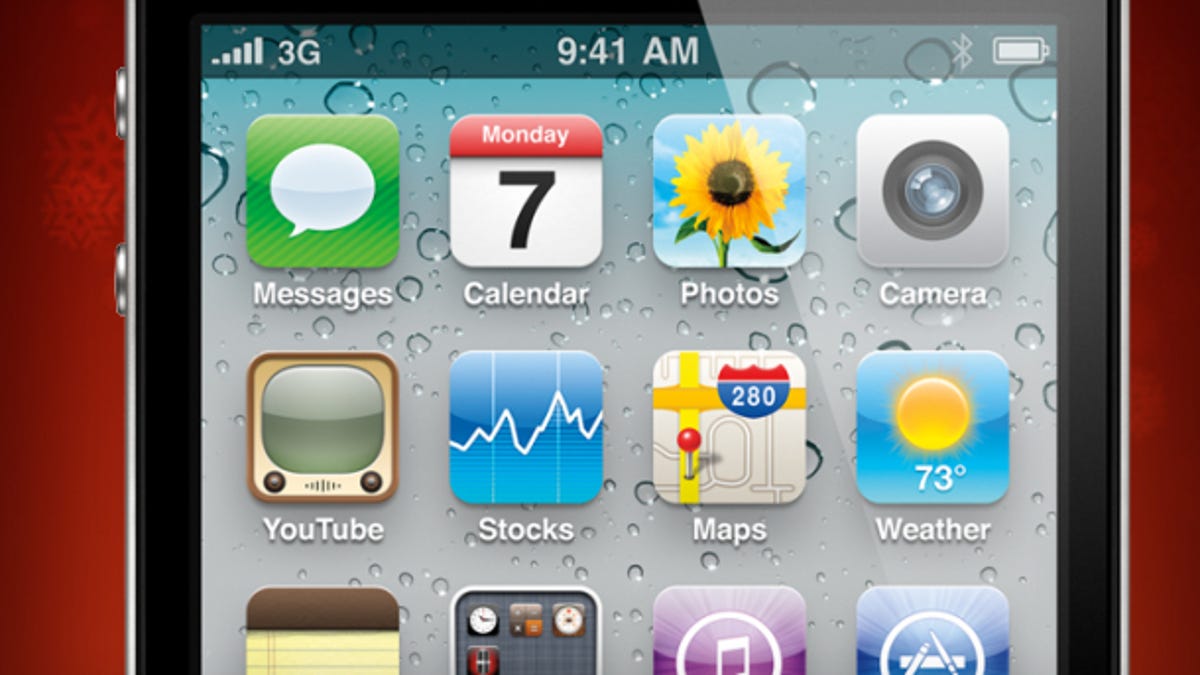iPhone sales strong in U.S., U.K., but declining elsewhere
Apple's iPhone sales are down in France, Germany, Spain, and Italy, a new study has found.

Apple's iPhone sales are strong worldwide, but across Europe they appear to be a bit of a mixed bag.
During the 12-week period that ended November 30, Apple's iPhone market share jumped to 36 percent in the U.S., up from the 25 percent a year ago, according to Reuters, which obtained new market share data today from research firm Kantar Worldpanel ComTech. The U.S. was its strongest region, but the U.K. wasn't far behind. There, the iPhone's market share jumped to 31 percent for the period, rising from 21 percent last year.
Elsewhere around Europe, however, the iPhone's share has given way to Android. In France, for example, Apple's market share has dropped from 29 percent last year to 20 percent this year, Kantar told Reuters. The iPhone's German market share is now at 22 percent, down from 27 percent in 2010. Even customers in Italy and Spain have become less likely to pick up a new iPhone.
Meanwhile, Android devices have seen their popularity rise significantly in the past year. In Germany, for example, Android owns 61 percent of the market, and the Samsung Galaxy S II is its bestselling smartphone, according to Reuters. Android's market share isn't lower than 46 percent in any country across the continent.
So, what gives? The economy, Kantar told Reuters. With many countries across Europe enduring the worst economic crisis in decades and with the possibility of a euro collapse weighing heavily on consumers, they're becoming less likely to buy Apple's latest iPhone 4S model, which starts at $199 in the States. At the same time, those folks are buying Android devices, due to the likelihood of finding cheaper options.
But even as the iPhone's market share slips in Europe, Apple is expected to post strong iPhone sales when it announces its calendar fourth-quarter performance early next year. UBS analyst Maynard Um said earlier this month that Apple could sell as many as 30 million iPhones worldwide this quarter. William Power, an analyst at Robert W. Baird, said Apple will sell 31.2 million iPhones during the period. Neither analyst, however, broke down sales by market.
Looking beyond sales, it's tough to say if Apple would really care that its market share in some countries across Europe is declining. During the company's last earnings call, Apple CEO Tim Cook said that China has now become the iPhone maker's second-most-important territory behind the U.S.
It makes some sense. Research firm Strategy Analytics reported last month that China is now the world's largest smartphone market, with 23.9 million devices launched to the country during the third quarter. What's more, the research firm only expects the country's meteoric rise to continue as more people sign up for smartphones.
Apple wants to be offering the smartphone those folks turn to. And according to reports, it continues to work toward a deal with China's largest carrier, China Mobile, to expand its smartphone's reach in the country. If successful, Apple could offer its iPhone to a whopping 644.3 million subscribers.
Apple did not immediately respond to CNET's request for comment on the Reuters report.

